Why a Black history class was banned in Florida schools
Gov. Ron DeSantis, the Stop WOKE Act, and the fight over race and education

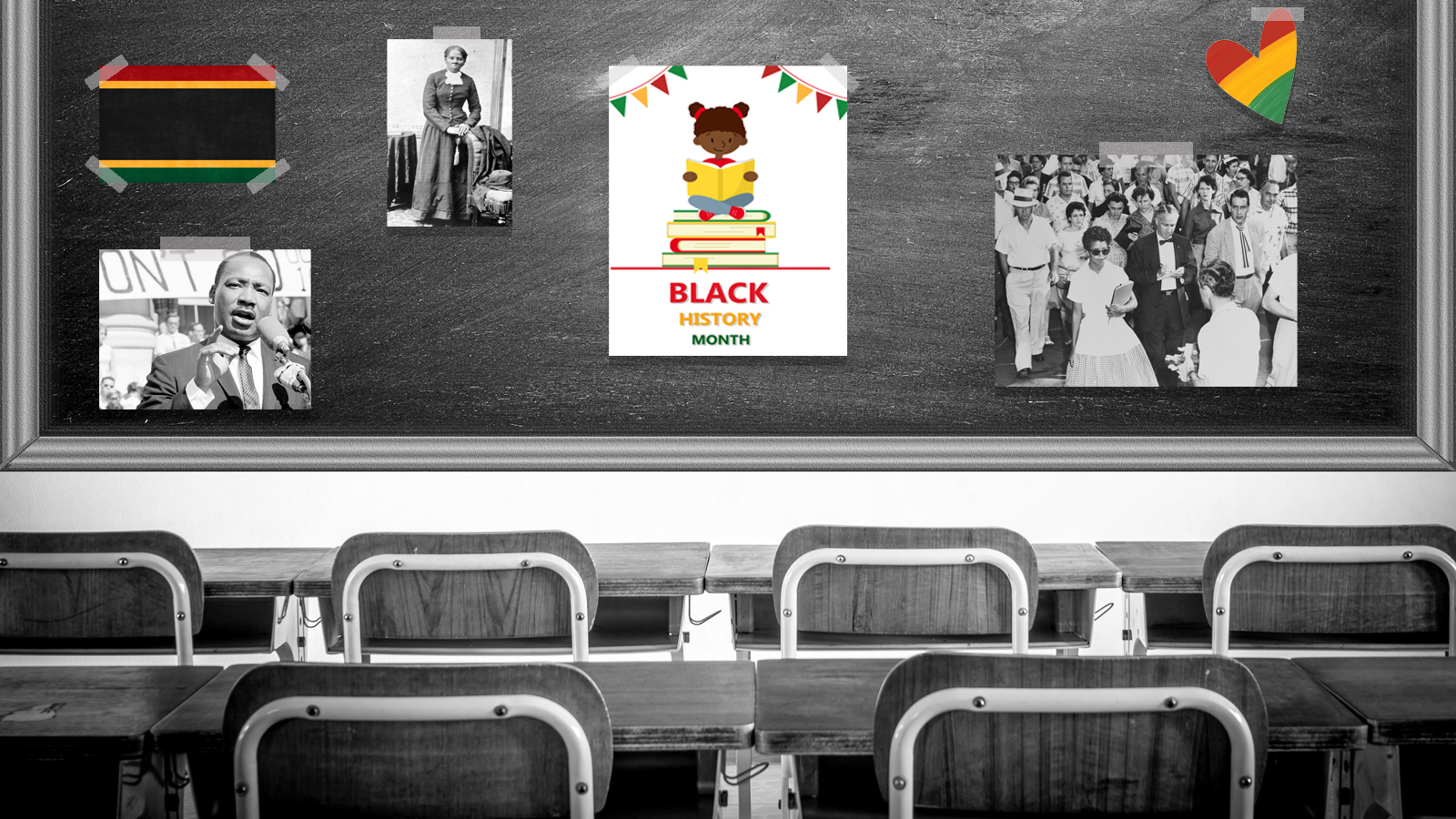
A free daily email with the biggest news stories of the day – and the best features from TheWeek.com
You are now subscribed
Your newsletter sign-up was successful
Can Black history be taught in Florida? State officials say yes — but they have also put a stop to a new Advanced Placement high school class on the topic, saying it violates a state prohibition on the use of "critical race theory" concepts in Sunshine State classrooms. The class "is inexplicably contrary to Florida law and significantly lacks educational value," the Florida Department of Education said in an unsigned letter. But critics like state Sen. Shevrin Jones say measures like the "Stop WOKE Act" discourage an honest discussion of America's racial history and are creating "an entire generation of Black children who won't be able to see themselves reflected at all within their own education or in their own state." What does Florida law say about teaching the Black experience in America? And what does it mean beyond Florida? Here's everything you need to know:
What does the Florida law actually say?
The Florida Board of Education Banned so-called "critical race theory" (CRT) concepts in 2021. After that, Florida Gov. Ron DeSantis, a leading contender for the GOP presidential nomination in 2024, signed the "Stop WOKE Act" in April 2022. The act was intended "to restrict race discussions in Florida," the Tallahassee Democrat reports. There are eight concepts prohibited in the state's public schools and universities, John R. Vile adds at The First Amendment Encyclopedia, including the teaching that a person is "inherently racist, sexist, or oppressive" or that other people are "either privileged or oppressed is necessarily determined by his or her race, color, national origin, or sex." And no classes should make students "feel guilt, anguish or other forms of psychological distress" because of historical racism in America. (You can read the entire text of the bill here.)
"We're not going to tell a kindergartener that they're an oppressor based on their race and what may have happened 100 or 200 years ago," DeSantis said at the bill-signing ceremony. "And we're not going to tell other kids that they're oppressed based on their race."
The Week
Escape your echo chamber. Get the facts behind the news, plus analysis from multiple perspectives.

Sign up for The Week's Free Newsletters
From our morning news briefing to a weekly Good News Newsletter, get the best of The Week delivered directly to your inbox.
From our morning news briefing to a weekly Good News Newsletter, get the best of The Week delivered directly to your inbox.
What do critics say about the Stop WOKE Act?
They say that it's vague — and believe that's the point. The law lets parents and students sue teachers and schools for violations of its prohibitions, Huffington Post reports, but doesn't draw any bright lines about how to prevent students from feeling "guilt" over history lessons. While Florida actually requires the teaching of Black history, critics say the Stop WOKE Act effectively discourages teachers from talking about the history of Jim Crow laws, slavery, or lynching in America.
They also say that the law prevents teachers from accurately discussing history. Reason reports that Florida A&M University law professor LeRoy Pernell isn't sure he can even describe the history of his own school, which was created in 1949 to admit two Black students who weren't allowed into the University of Florida because of their race. "I do now live with the idea that at any moment, the state can come and take negative action against me because of my thought," Pernell tells Reason.
What are courts saying about the Florida law?
In November a federal judge temporarily blocked enforcement of the law, at least as it applies to Florida universities, while a lawsuit from students and professors proceeds. U.S. District Judge Mark E. Walker said the First Amendment's free speech provisions limit a state's ability to ban ideas and discussions from college classrooms, even if the state is paying for those classrooms. "Striking at the heart of 'open-mindedness and critical inquiry,' the State of Florida has taken over the 'marketplace of ideas' to suppress disfavored viewpoints and limit where professors may shine their light on eight specific ideas," Walker wrote. The order didn't apply to K-12 schools, however.
The law doesn't just affect schools, does it?
That's right. The Stop WOKE Act also prohibits much "diversity, equity and inclusion" training done by businesses — telling employers they can't make workers undergo instruction "that would make them feel uncomfortable or guilty about their race because of historical events," The New York Times reports. Judge Walker blocked that part of the law in August, again on First Amendment grounds. "If Florida truly believes we live in a post-racial society, then let it make its case," he wrote. "But it cannot win the argument by muzzling its opponents."
A free daily email with the biggest news stories of the day – and the best features from TheWeek.com
Haven't other states passed similar laws?
Florida has earned a lot of attention, but a number of GOP-led states have passed or considered similar laws to restrict racial discussions in public school classrooms. None of those states, however, is led by Ron DeSantis — seen by many observers as likely the leading Republican challenger to Donald Trump, who remains the party's leader until proven otherwise. But another new GOP governor, Arkansas' Sarah Huckabee Sanders, has indicated her eagerness to follow DeSantis on race and education issues.
What's next?
The College Board, which develops AP courses, hasn't finalized the content of the class that has been rejected by Florida officials. The curriculum is currently being piloted in 60 schools across the country, NPR reports, with a full rollout expected during the 2024-25 school year. "If College Board decides to revise its course to comply with Florida law, we will come back to the table," says Florida Education Commissioner Manny Diaz Jr.
In the meantime, fights over race and education are likely to be central to DeSantis' campaign if he does indeed run for president in 2024. It might work, Michael Smith writes for Bloomberg: The Florida governor has "used education to motivate voters in a way that former President Donald Trump never did."
Joel Mathis is a writer with 30 years of newspaper and online journalism experience. His work also regularly appears in National Geographic and The Kansas City Star. His awards include best online commentary at the Online News Association and (twice) at the City and Regional Magazine Association.
-
 Health insurance: Premiums soar as ACA subsidies end
Health insurance: Premiums soar as ACA subsidies endFeature 1.4 million people have dropped coverage
-
 Anthropic: AI triggers the ‘SaaSpocalypse’
Anthropic: AI triggers the ‘SaaSpocalypse’Feature A grim reaper for software services?
-
 NIH director Bhattacharya tapped as acting CDC head
NIH director Bhattacharya tapped as acting CDC headSpeed Read Jay Bhattacharya, a critic of the CDC’s Covid-19 response, will now lead the Centers for Disease Control and Prevention
-
 ‘The West needs people’
‘The West needs people’Instant Opinion Opinion, comment and editorials of the day
-
 What have Trump’s Mar-a-Lago summits achieved?
What have Trump’s Mar-a-Lago summits achieved?Today’s big question Zelenskyy and Netanyahu meet the president in his Palm Beach ‘Winter White House’
-
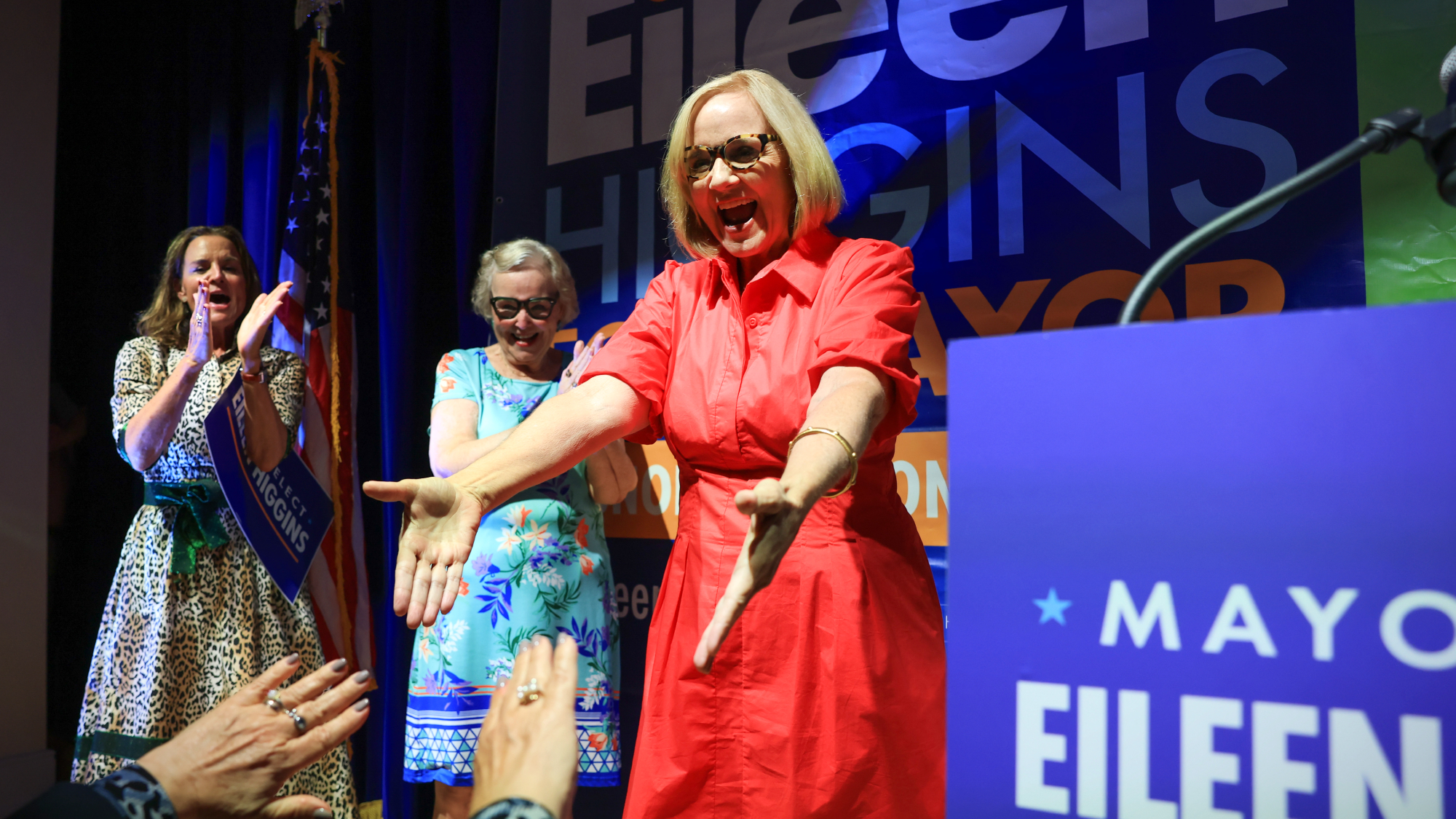 Miami elects first Democratic mayor in 28 years
Miami elects first Democratic mayor in 28 yearsSpeed Read Eileen Higgins, Miami’s first woman mayor, focused on affordability and Trump’s immigration crackdown in her campaign
-
 Should TV adverts reflect the nation?
Should TV adverts reflect the nation?Talking Point Reform MP Sarah Pochin’s controversial comments on black and Asian actors in adverts expose a real divide on race and representation
-
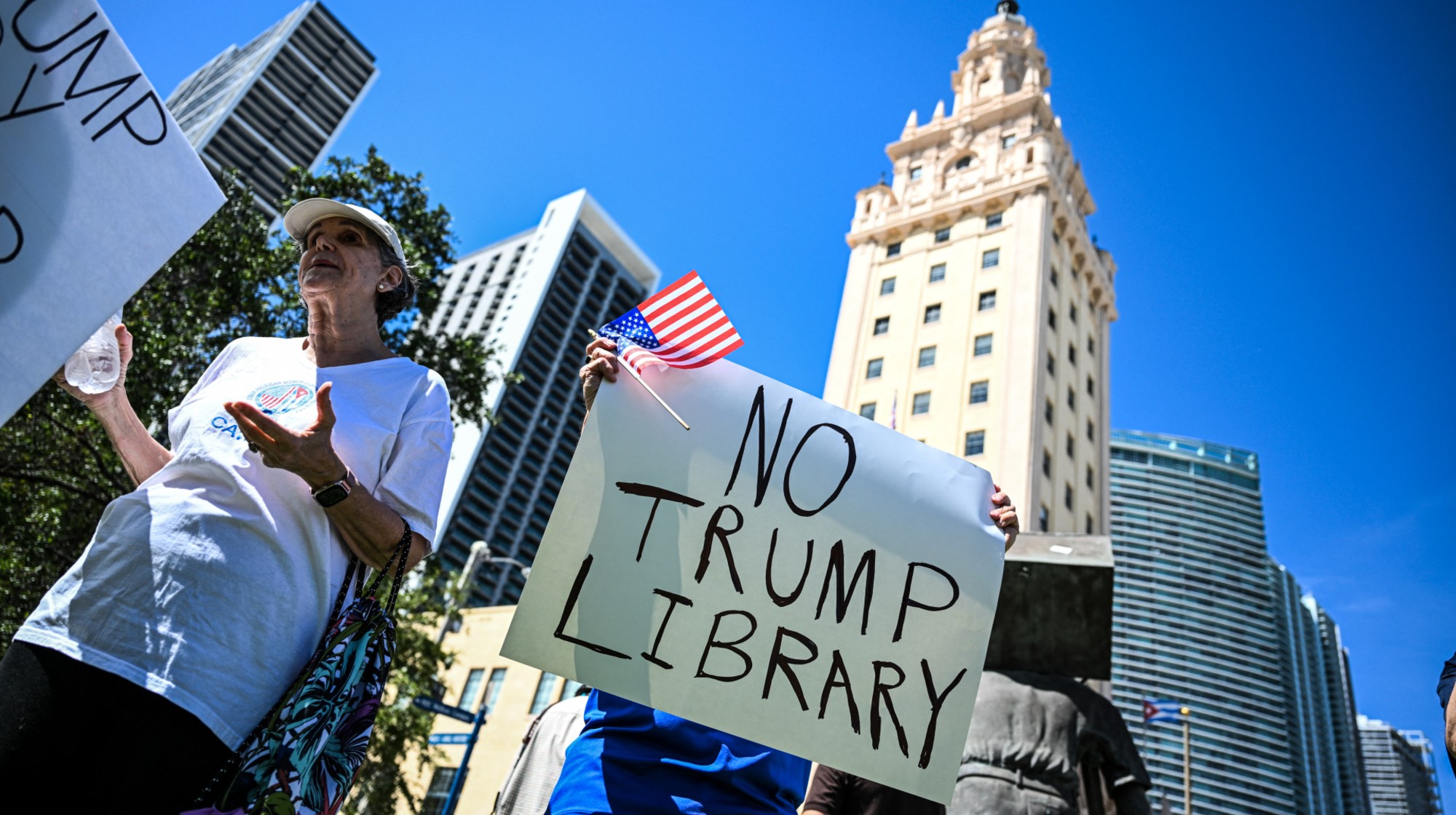 Miami Freedom Tower’s MAGA library squeeze
Miami Freedom Tower’s MAGA library squeezeTHE EXPLAINER Plans to place Donald Trump’s presidential library next to an iconic symbol of Florida’s Cuban immigrant community has South Florida divided
-
 Florida wages crosswalk war on public displays of pride
Florida wages crosswalk war on public displays of prideIN THE SPOTLIGHT Gov. Ron DeSantis' campaign comes for colorful crosswalks, as Florida residents engage in guerrilla graffiti as a form of resistance
-
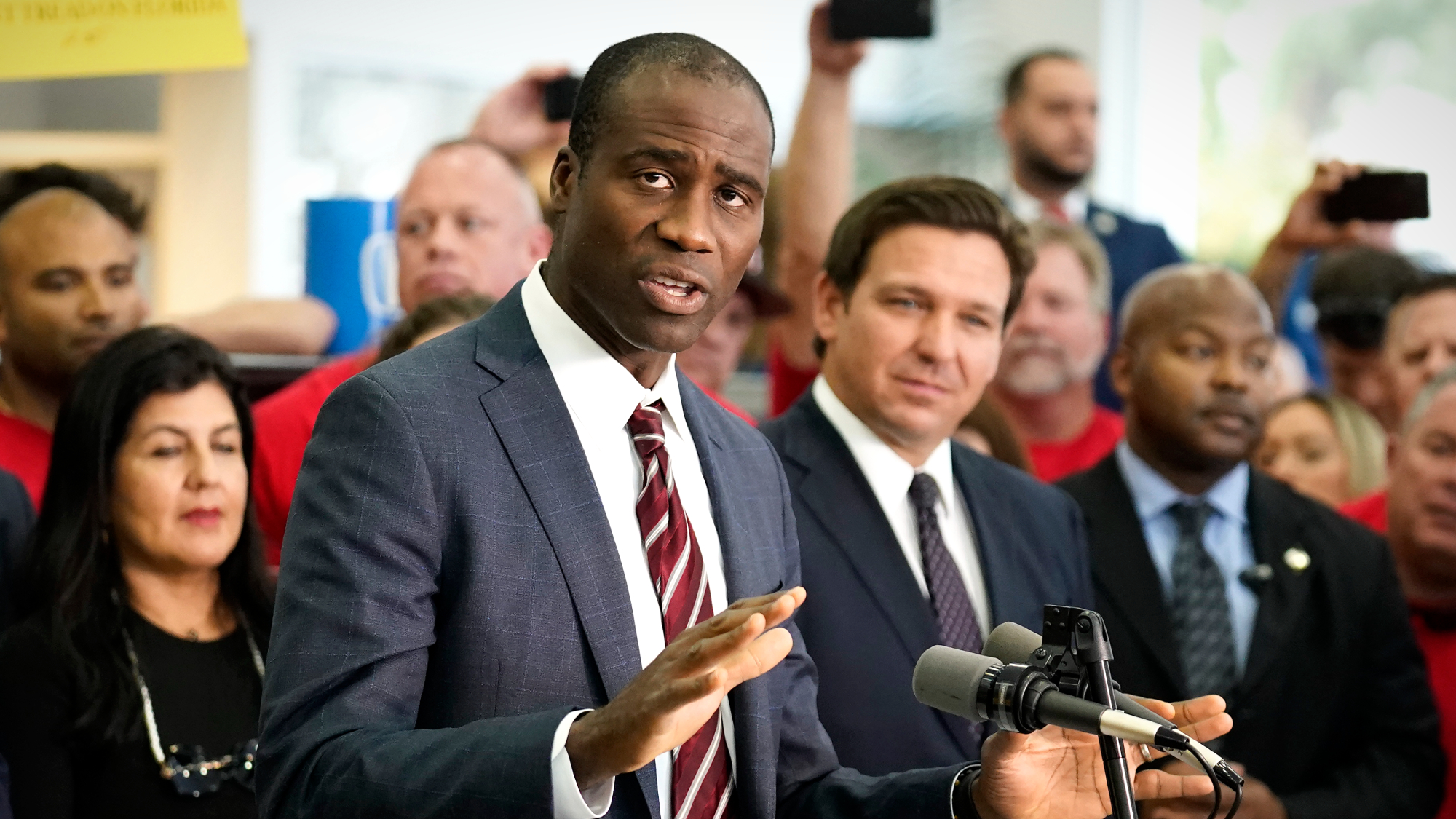 Florida aims to end all state vaccine requirements
Florida aims to end all state vaccine requirementsSpeed Read Health Secretary Robert F. Kennedy Jr. continues to cut vaccine access and install anti-vaccine activists at the FDA and CDC
-
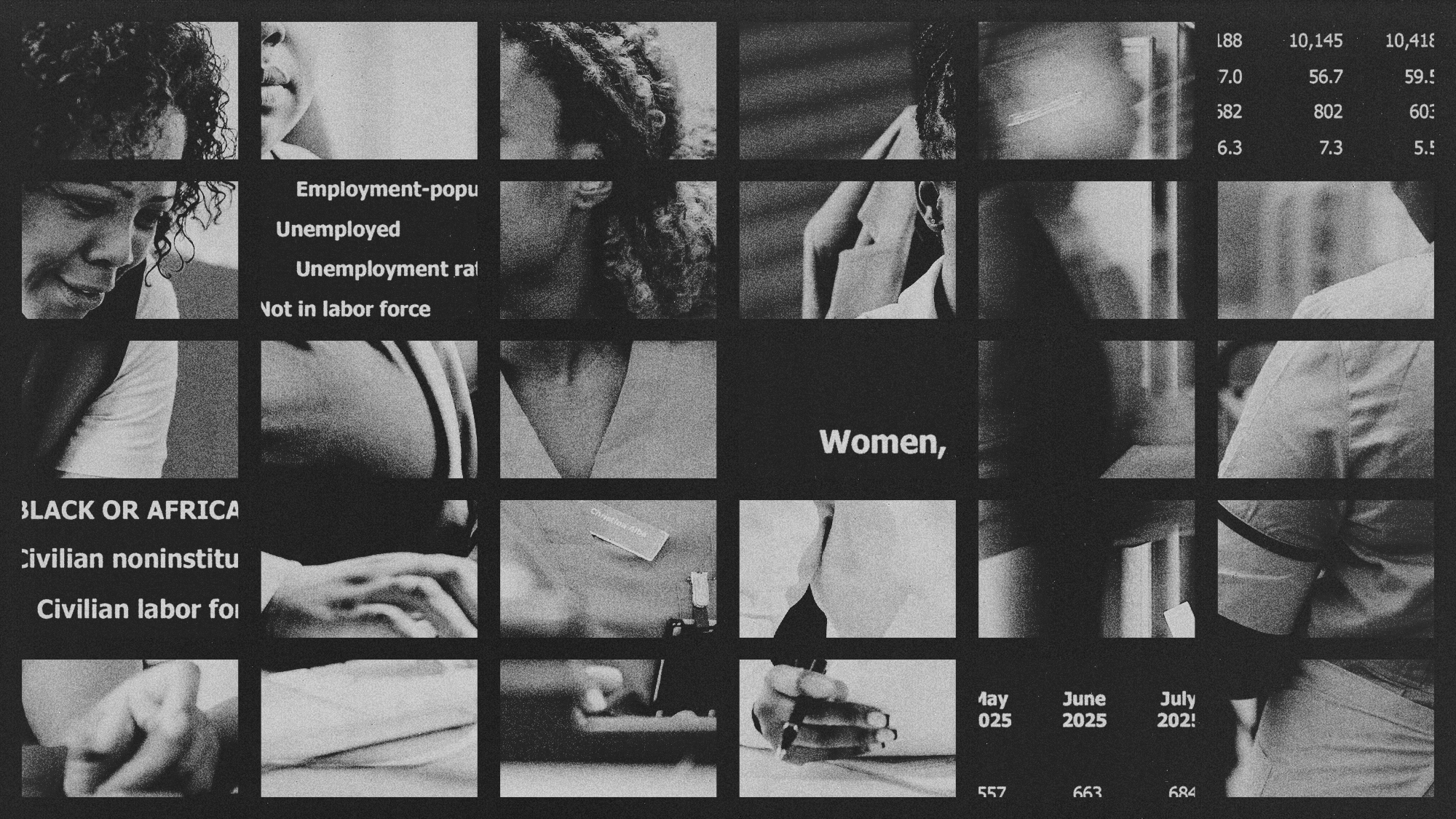 Black women are being pushed out of the workforce en masse
Black women are being pushed out of the workforce en masseIN THE SPOTLIGHT Employment data shows hundreds of thousands of Black women have left the labor market over the past few months. What's behind this mass exodus?
